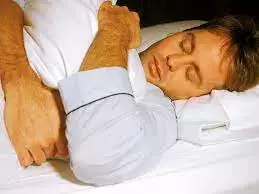- Home
- Medical news & Guidelines
- Anesthesiology
- Cardiology and CTVS
- Critical Care
- Dentistry
- Dermatology
- Diabetes and Endocrinology
- ENT
- Gastroenterology
- Medicine
- Nephrology
- Neurology
- Obstretics-Gynaecology
- Oncology
- Ophthalmology
- Orthopaedics
- Pediatrics-Neonatology
- Psychiatry
- Pulmonology
- Radiology
- Surgery
- Urology
- Laboratory Medicine
- Diet
- Nursing
- Paramedical
- Physiotherapy
- Health news
- Fact Check
- Bone Health Fact Check
- Brain Health Fact Check
- Cancer Related Fact Check
- Child Care Fact Check
- Dental and oral health fact check
- Diabetes and metabolic health fact check
- Diet and Nutrition Fact Check
- Eye and ENT Care Fact Check
- Fitness fact check
- Gut health fact check
- Heart health fact check
- Kidney health fact check
- Medical education fact check
- Men's health fact check
- Respiratory fact check
- Skin and hair care fact check
- Vaccine and Immunization fact check
- Women's health fact check
- AYUSH
- State News
- Andaman and Nicobar Islands
- Andhra Pradesh
- Arunachal Pradesh
- Assam
- Bihar
- Chandigarh
- Chattisgarh
- Dadra and Nagar Haveli
- Daman and Diu
- Delhi
- Goa
- Gujarat
- Haryana
- Himachal Pradesh
- Jammu & Kashmir
- Jharkhand
- Karnataka
- Kerala
- Ladakh
- Lakshadweep
- Madhya Pradesh
- Maharashtra
- Manipur
- Meghalaya
- Mizoram
- Nagaland
- Odisha
- Puducherry
- Punjab
- Rajasthan
- Sikkim
- Tamil Nadu
- Telangana
- Tripura
- Uttar Pradesh
- Uttrakhand
- West Bengal
- Medical Education
- Industry
Addition of Sleep deprivation to treatment of depression may not enhance outcomes

The addition of sleep deprivation to treatment packages leads to enhanced depressive outcomes suggests a recent study published in the Sleep Medicine Reviews
Sleep deprivation, alone or in combination with pharmacological treatment and as part of a chronotherapy package, is of potential use for people with major depressive episodes, however the evidence base is still conflicting. The aim of this systematic review and meta-analysis is to assess the clinical effects of sleep deprivation in comparison to any other intervention for the acute and long-term treatment of mood disorders.
They searched electronic databases and trial registries (last update: 16th October 2021) for published and unpublished randomised controlled trials recruiting participants with a major depressive episode in unipolar or bipolar affective disorder.
The clinical outcomes of interest were the reduction in depressive symptoms at different timepoints and the number of participants experiencing at least one side effect.
The results were:
Overall, 29 trials (1246 participants) were included. They did not find any difference in change in symptoms or all-cause discontinuation between interventions including SD compared to a control of the same intervention except without SD. In the included studies there were no available data for adverse events.
Thus, using the most methodologically rigorous approach, we did not find evidence that the addition of sleep deprivation to treatment packages leads to enhanced depressive outcomes.
Reference:
Pamina Mitter, Franco De Crescenzo, Kimberley Loo Yong Kee, Jun Xia, Samantha Roberts, Wenjie Chi, Ayse Kurtulmus, Simon D. Kyle, John R. Geddes, Andrea Cipriani. Sleep deprivation as a treatment for major depressive episodes: A systematic review and meta-analysis, Sleep Medicine Reviews, Volume 64, 2022, 101647, ISSN 1087-0792, https://doi.org/10.1016/j.smrv.2022.101647
Dr. Shravani Dali has completed her BDS from Pravara institute of medical sciences, loni. Following which she extensively worked in the healthcare sector for 2+ years. She has been actively involved in writing blogs in field of health and wellness. Currently she is pursuing her Masters of public health-health administration from Tata institute of social sciences. She can be contacted at editorial@medicaldialogues.in.


